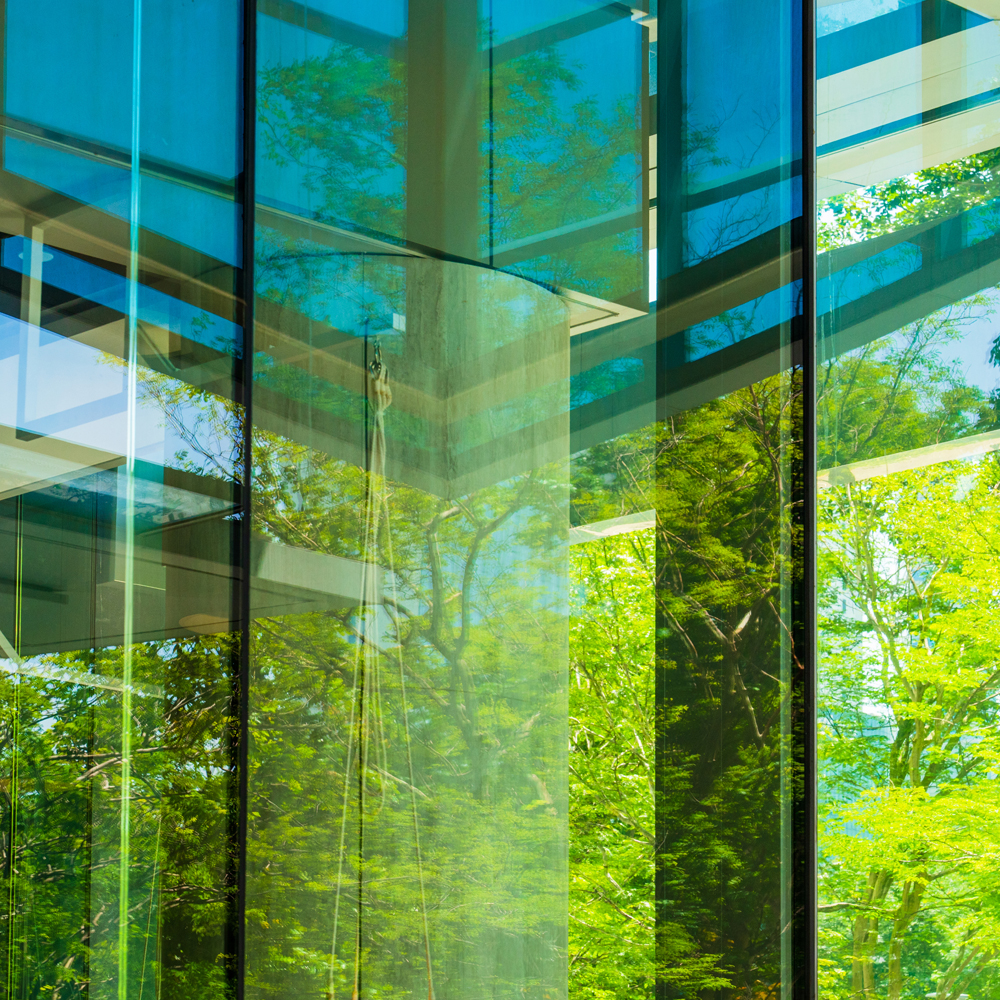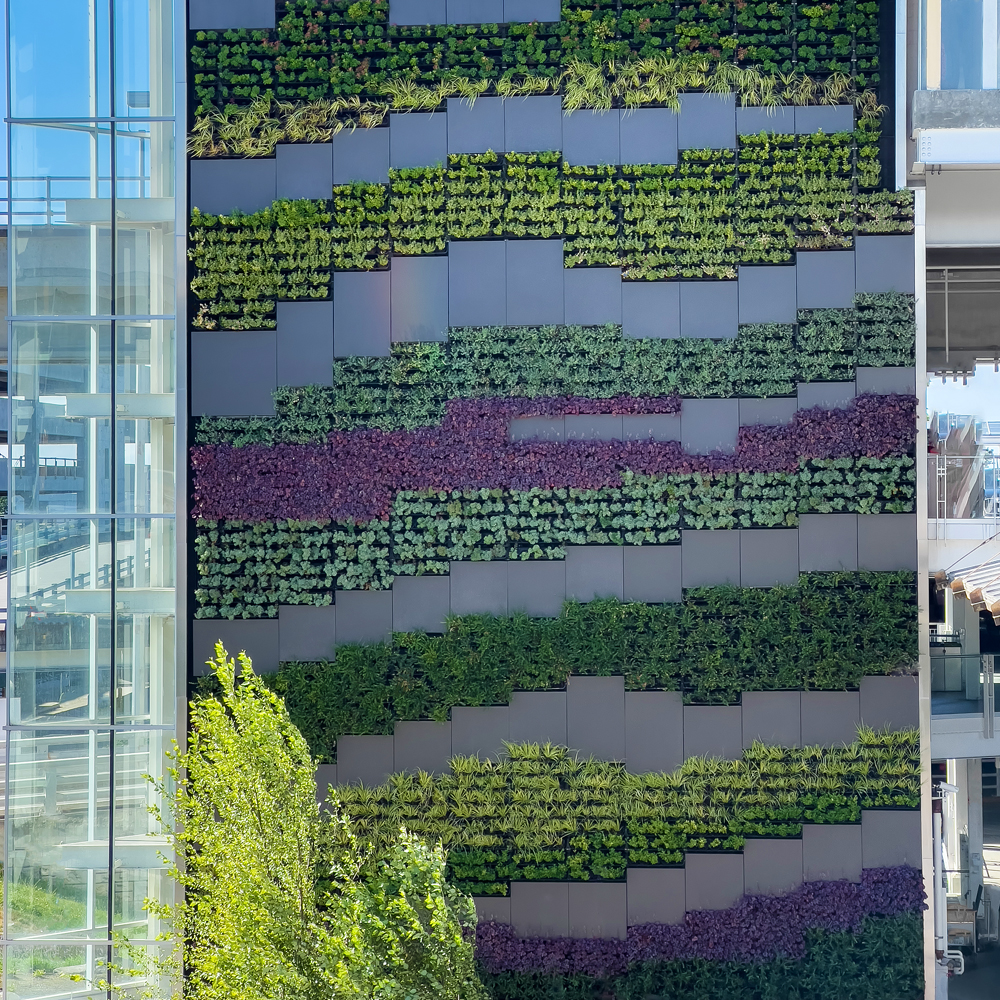To meet our climate goals, we need to build better.
Accounting for 37 percent of global emissions, our buildings and construction sectors urgently need to decarbonize. Carbon-intensive building materials, outdated construction methods and inefficient heating and cooling are just some of the factors that make buildings the single-largest source of greenhouse gas emissions in dense urban areas. In Toronto, existing homes and buildings account for over 50 percent of emissions. With millions of new homes needed by 2030 to support Canada’s growing population, this new construction could add 18 megatonnes of emissions annually until 2030. Through this mission, MaRS is helping accelerate the adoption of Canadian innovations that can be part of the solution to decarbonizing our existing buildings and building better new ones.
To meet our climate goals, we need to build better.

Better Buildings mission objectives
The Better Buildings mission aims to help Canada achieve its climate goals in three key ways:
- Adopting innovations that can reduce the operational emissions of Canada’s buildings.
- Accelerate the uptake of low-carbon building materials and methods.
- Amplify the role of Canadian cleantech in existing efforts to create a more resilient, adaptive and affordable built environment.
Better Buildings mission objectives

Better Buildings Adoption Accelerator, made possible by the Peter Gilgan Foundation
Support adoption-ready, made-in-Canada technologies with climate solutions through tailored programming to help make high-impact decarbonization opportunities a reality.
Better Buildings Adoption Accelerator, made possible by the Peter Gilgan Foundation

Establish and convene coalitions
Bring together a diverse group of subject-matter experts and stakeholders from industry, the innovation community and the financial ecosystem to guide Mission projects.
Establish and convene coalitions

Better Buildings: Hospitality and Recreation Business Cohort
MaRS is launching the Better Buildings: Hospitality and Recreation Business Cohort, an 18-month program that helps owners and franchisees of hotels, motels, inns, gyms, clubs and spas reduce operating expenses, maximize efficiency and enhance customer experience. Each business in the cohort will complete three phases of work: assessment, planning and implementation. In the last phase, each company will complete an initial deployment project of a decarbonization technology with a climate venture.
Better Buildings: Hospitality and Recreation Business Cohort

The Road-Mapping Initiative to Networked Geothermal (RING)
A project under Better Buildings that convened multi-industry stakeholders to explore an affordable path to decarbonizing heat delivery in buildings on a community-wide scale in Ontario, through deployment of networked geothermal, a form of thermal energy network (TEN).
The Road-Mapping Initiative to Networked Geothermal (RING)

The Better Buildings Adoption Accelerator, made possible by the Peter Gilgan Foundation, helps adoption-ready ventures aiming to reduce the operational and embodied carbon of our built environment. Meet our six Climate Champions making buildings more sustainable.
Climate Champions

More than a quarter of waste globally is generated through construction and demolition. Sheida Shahi and her team at Toronto-based Adaptis are working to reduce that colossal amount of refuse through its AI platform that helps building owners and operators improve energy efficiency while lowering operating expenses. Growing out of research conducted at the University of Waterloo, its technology can be used at all stages of a structure’s life — from acquisition to demolition. Through its holistic life-cycle assessments, Adaptis can identify thousands of design and retrofit options ranging from walls and windows to HVAC systems and even existing building materials that can be reused or salvaged. The startup can also help building managers qualify and apply for industry environmental certification, and provide recommendations for reducing Scope 1-3 emissions and reporting.

The world runs on Alternating Current (AC) power. But the majority of gadgets, including energy efficient devices like LEDs, run on Direct Current (DC) power. That means those eco-friendly lights become less sustainable as they lose heat energy converting the AC power it receives into the DC power it needs. Markam’s Cence Power has developed power adaptor hubs that can plug into any existing electrical panel, converting power to DC on the spot, rather than putting the burden on devices. Engineered to transmit power over longer distances using less copper, Cence Power’s systems can reduce operational energy consumption by upward of 40 percent, says CEO Bolis Ibrahim. The company’s low-voltage devices can be used in homes, offices and stores, while its higher-voltage models are designed for telecom, data centres and indoor lighting applications.

Keeping cool comes at a cost: Air conditioning accounts for a tenth of global electricity consumption, and that figure is set to skyrocket over the coming decades as more people look for respite from rising temperatures. A spin-out of the University of Waterloo, Kitchener-based Evercloak is working on a tiny solution that could have an outsized effect on the efficiency of cooling units. Founder Evelyn Allen and her team have created specialized membranes — thinner than a strand of hair — that can be applied to existing HVAC systems. This system filters out humidity before it reaches the A/C unit, making it much more efficient to cool down a space. In turn, this can double a building’s efficiency, Allen says. In 2025, Evercloak’s tech will be put to the test at the U.S. Department of Energy’s National Renewable Energy Laboratory in Colorado.

When you picture dense, urban areas, visions of concrete and steel come to mind. Intelligent City is taking a different approach. This Vancouver-based startup’s material of choice is mass timber: thick, compressed layers of wood suitable for large-scale projects. The company works with clients from the initial design phase to the final stage of construction, streamlining the process with software automation, modular designs and robotic manufacturing. By pre-fabricating its mass timber components off-site, Intelligent City can cut construction times in half and lower costs by 20 percent, says co-founder Oliver Lang. “By bridging the gap between scalability and customization, we can significantly increase the production and affordability of housing,” he told Forbes magazine earlier this year. In 2020, the National Building Code of Canada updated regulations, allowing mass timber to be used in buildings upward of 12 storeys. In Ontario and B.C. that permit has been upped to 18 storeys. The company is working on several projects across the country, including two multi-storey mass timber rental buildings in Toronto and a mixed-use development in Vancouver.

Windows are one of the biggest culprits for a building’s energy loss. It’s the first place cooling escapes during sweltering summer heat, and where heating is lost on a cold winter day. Toronto’s NxLite has crafted a transparent, lightweight nanocoating that can be slid into existing window frames. This means building operators can save upward of 40 percent on energy bills, and lower a building’s carbon footprint by as much as 30 percent, says CEO David Mather. Its nanocoating can also be used on passenger and industrial vehicles, as well as industrial refrigerator windows to improve insulation. Having completed a Beta pilot project and modelled two large commercial projects, Mather and his team are now looking to establish a commercial pilot.

Tinybox, with operations in Toronto and Montreal, is developing a system to massively speed up construction — on a small scale. Its modular tiny home kits that can be assembled in as little as 48 hours. The company’s net-zero, self-reliant units feature a solar roof, ultra-insulated walls, a closed-loop shower system and a bioreactor toilet — meaning there’s no need for a septic tank or hydro grid hookup, says co-founder Pooya Saberi. While the homes have a small footprint — modules start from around 106 square feet — the ceiling heights are over 8 feet high, and are decked out with multi-purpose furniture for maximum space efficiency, whether it’s being used as a backyard office or off-grid cabin. In 2025, Tinybox plans to set up more than 15 units, including an off-grid resort in P.E.I., a four-unit cottage in Costa Rica and housing for a new city in Texas.

Kelly Christensen
Director, Energy & Sustainability
Black & McDonald
Kelly Christensen
Director, Energy & Sustainability
Black & McDonald


Aurélie Vérin
Senior Policy Analyst
Building Decarbonization Alliance
Aurélie Vérin
Senior Policy Analyst
Building Decarbonization Alliance


Charlie Frise
Co-founder
Tinybox
Charlie Frise
Co-founder
Tinybox


Oliver David Krieg
CTO
Intelligent City
Oliver David Krieg
CTO
Intelligent City


Oliver Lang
CEO and Co-founder
Intelligent City
Oliver Lang
CEO and Co-founder
Intelligent City


Irene Lam
Senior Advisor
Mantle Developments
Irene Lam
Senior Advisor
Mantle Developments


Alia Abaya
Chief Executive Officer
Circle Community LandTrust
Alia Abaya
Chief Executive Officer
Circle Community LandTrust


Caitlin Vanderkooy
Director, ESG Program Innovation
Infrastructure Ontario
Caitlin Vanderkooy
Director, ESG Program Innovation
Infrastructure Ontario


Brendan Haley
Senior Director of Policy Strategy
Efficiency Canada
Brendan Haley
Senior Director of Policy Strategy
Efficiency Canada


Mark Sales
Co-founder and COO
Greyter Water Systems
Mark Sales
Co-founder and COO
Greyter Water Systems


Evelyn Allen
CEO and Co-founder
Evercloak
Evelyn Allen
CEO and Co-founder
Evercloak


Bolis Ibrahim
President
Cence Power
Bolis Ibrahim
President
Cence Power


Yasir Sultan
Executive Director, Built Environment Climate Change Initiatives
National Research Council Canada
Yasir Sultan
Executive Director, Built Environment Climate Change Initiatives
National Research Council Canada


Lucy Lu
Climate Change Advisor
Peter Gilgan Foundation
Lucy Lu
Climate Change Advisor
Peter Gilgan Foundation


Mwarigha
Vice President of Housing Growth, Development & Asset Sustainability
WoodGreen Community Services
Mwarigha
Vice President of Housing Growth, Development & Asset Sustainability
WoodGreen Community Services


Phil Santana
Director, Sustainability
Mattamy Homes Canada
Phil Santana
Director, Sustainability
Mattamy Homes Canada


Randal Froebelius
Project Executive
MaRS Hubs
Randal Froebelius
Project Executive
MaRS Hubs


Dan Pinault
Vice President of Corporate Development and Strategy
Wyse Meter Solutions
Dan Pinault
Vice President of Corporate Development and Strategy
Wyse Meter Solutions


